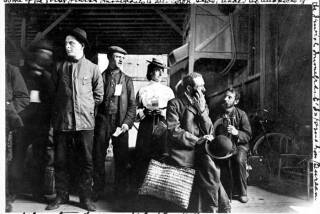Marshall D. Shulman, 91; expert on the Soviet Union
- Share via
Marshall D. Shulman, one of the nation’s best-known scholars of Soviet studies and founding director of the W. Averell Harriman Institute for Advanced Study of the Soviet Union at Columbia University, died Thursday, a university spokeswoman said. He was 91.
Shulman was instrumental in obtaining an $11.5-million endowment in the early 1980s from Pamela and W. Averell Harriman to establish the entity formerly known as the Russian Institute, said university spokeswoman Tanya Domi, who didn’t know where or how Shulman died. He retired in 1986.
In 1949, he joined the Department of State, serving as an information officer for the U.S. Mission to the United Nations in New York and then as special assistant to Secretary of State Dean Acheson between 1950 and 1953. He was special advisor on Soviet affairs to Secretary of State Cyrus R. Vance from 1977 to 1980.
He later became associate director of the Russian Research Center at Harvard University.
During those years, Shulman was involved in what would later be called second track diplomacy, the convening of scientists and public figures in the Soviet Union and the United States to seek common ground on issues in the two nations’ relationship, particularly the nuclear arms race. According to a New York Times article some years ago, Shulman visited the Soviet Union 40 times, either as a scholar or as a diplomat.
In 1966 his series of lectures at the Council on Foreign Relations were published in the book “Beyond the Cold War.”
Born in Jersey City, N.J., Shulman graduated from the University of Michigan in 1937. He worked as a reporter at the Detroit News for two years before entering Harvard University, where he received a graduate degree in English literature.
He served five years in the U.S. Army Air Forces as a glider pilot and psychological warfare officer during World War II, receiving a Bronze Star.
He became interested in Soviet relations while recuperating in the Philippines from a bout with pneumonia at the end of the war.
He returned to New York and enrolled in Columbia University’s Russian Institute, where he was a member of the first class receiving master’s degrees.
Information on survivors was not immediately available.
More to Read
Sign up for Essential California
The most important California stories and recommendations in your inbox every morning.
You may occasionally receive promotional content from the Los Angeles Times.








